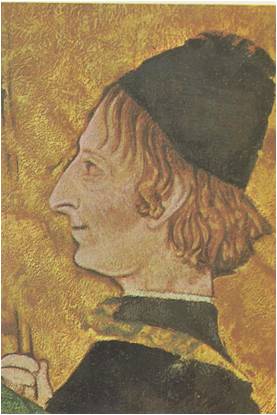China, that immense portion of East Asia bounded by the chilly Amur River and the hot jungles of Indo-China, by the Pacific Ocean and the Himalaya Mountains, was the most populous country on earth. For thousands of years, China had had a highly developed civilization. Its people thought of their land as the world itself; to them, it was the Middle Kingdom between the upper region, heaven and the lower region, hell, which was made up of all other lands. They considered foreigners nothing but barbarians. Only a few Europeans had entered China since the Middle Ages and the Chinese …
Read More »Tag Archives: Venetian
Gentlemen, Scholars and Princes 1400 – 1507
One day in the fifteenth century, the Turkish potentate of Babylonia decided to send gifts to the greatest ruler in Italy. He consulted his counselors and men who had traveled widely in Europe, asking them who best deserved this honour. They agreed that one Italian court outshone the rest and that his court must surely be the home of Italy’s mightiest sovereign. They did not name Milan, the home of the proud Sforza, nor Florence, the city of the clever Medici. The most magnificent court in Italy, they said, was at Ferrara, the capital of the dukes whose family name …
Read More »The Fall of Byzantium A. D. 992-1453
THE LONG struggle between the churches of the East and the West was only one of the many serious problems that weakened the empire and led to its downfall. Trade was another of its problems. Much of goods imported from the eastern world was sold to the west through Byzantine markets. A ten percent tax was collected on an imports and exports as well as on all goods passing through the Bosporus. This was one of the empire’s most important ways of collecting taxes. However, this rich flow of tax money began to get smaller and smaller in the tenth …
Read More »

